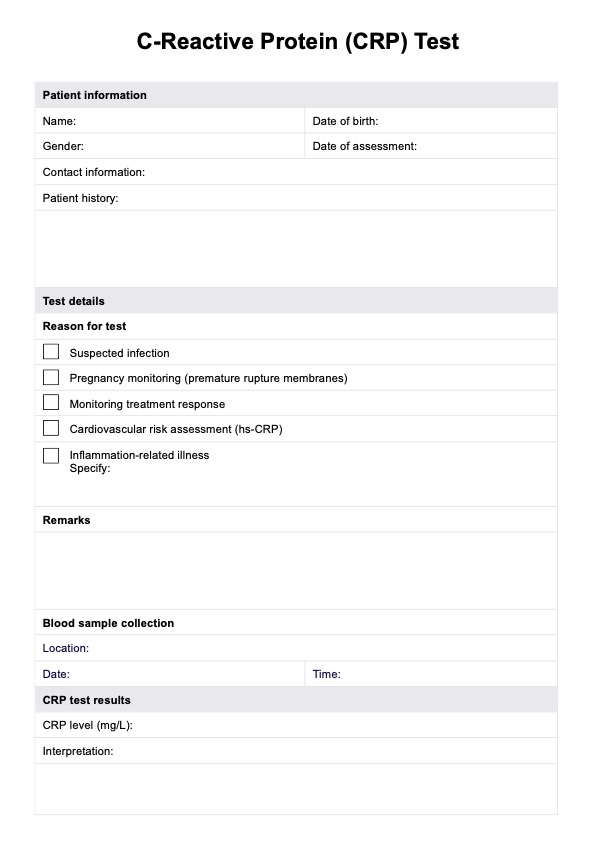The C-reactive protein test measures the level of CRP in the blood, which indicates inflammation in the body. It assesses acute inflammatory states and monitors conditions like infections and autoimmune diseases.

C-Reactive Protein
Use Carepatron's free C-Reactive Protein (CRP) Test PDF to efficiently conduct the CRP test on patients with inflammation.
Use Template
C-Reactive Protein Template
Commonly asked questions
If C-reactive protein levels are high, it suggests significant inflammation, prompting further investigation to identify the underlying cause, such as an infection or an inflammatory disorder.
An alarming level of CRP is generally considered to be over 10 mg/L, which may indicate a serious infection, an acute flare of a chronic condition, or other inflammatory diseases that require immediate medical attention.
EHR and practice management software
Get started for free
*No credit card required
Free
$0/usd
Unlimited clients
Telehealth
1GB of storage
Client portal text
Automated billing and online payments











